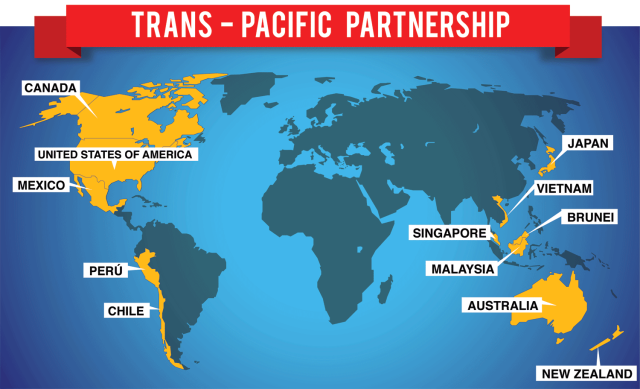 A few days ago, I mentioned that the EFF and other groups were writing the US Trade Representative to request he not sign off on any Trans-Pacific Partnership provisions that would block ongoing congressional attempts to reform the orphan works situation. Here’s a little more information on that situation, courtesy of David Post in The Volokh Conspiracy on The Washington Post.
A few days ago, I mentioned that the EFF and other groups were writing the US Trade Representative to request he not sign off on any Trans-Pacific Partnership provisions that would block ongoing congressional attempts to reform the orphan works situation. Here’s a little more information on that situation, courtesy of David Post in The Volokh Conspiracy on The Washington Post.
Post explains that the reason orphan works are so troublesome has to do with the statutory damages on copyright violation making it too risky to republish even commercially-nonviable orphan works. If you could get dinged $150,000 for publishing a book of poems nobody would have been interested in except that someone figured they could get $150,000 for suing over it, you’re effectively not going to bother.
And if you’re still wondering “Is this really such a big deal?,” multiply it all by 10 million (or more). Remember Google Books? I don’t know about you, but I was pretty excited by the thought that every book ever published was going to be available to me over the Net — with all the lousy news out there, that sure sounded like a good thing for the human race, no? Well, the Google Books project foundered largely because of the orphan works problem. Even Google is not willing to take on $100 billion or so of potential exposure to infringement claims, and its attempts to reach a settlement that would have waived the rights of “orphan works” copyright holders to get statutory damages was unavailing — on the grounds that no court can approve a settlement waiving the statutory rights of persons who are not only not present in the courtroom to weigh in on the settlement, but who haven’t even been notified — because, of course, nobody knows who they are — that there is a settlement.
I do feel the need to point out that the Google Books project itself didn’t “founder.” In fact, it was ruled to be legal fair use—except that the use of it that was deemed fair was using it to make all those books searchable. Making them all available was part of the Authors Guild settlement that was rejected for being overly broad. Google Books itself didn’t founder, the settlement did—but Google still gets to use the text of those orphan works for itself free and clear.
Regardless, Post notes that leaked versions of the TPP treaty contain provisions requiring that these statutory damages be made available, which could short-circuit any attempts by the U.S. Congress to do away with them. And, Post adds, the reason we’re in this mess to begin with is that the 1989 Berne Convention, another international agreement we signed onto, did away with our prior system of copyright notice and registration.
Treaties like this exist to harmonize the laws of multiple countries around the world. The problem is that the laws that make sense for one country (or for the business interests in those countries) might not make sense for all of them. Hopefully this one won’t tie our hands right when we’re trying to institute reforms.































